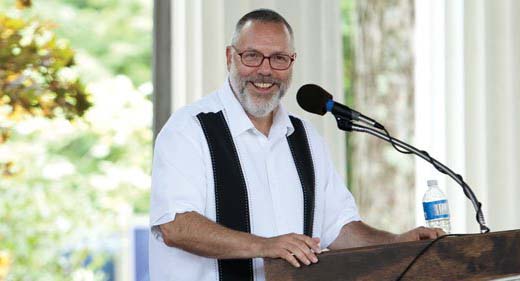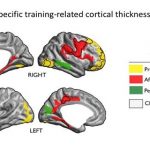by Rabbi Rami Shapiro: Twenty–five hundred years ago the Indian sage Siddhartha Gotama said, “Don’t believe anything second hand.  Don’t believe anything because it’s written in ancient books. Don’t believe anything because ‘everyone’ knows it’s so. Don’t believe anything because the sages proclaim it. Don’t believe anything because of habit. Don’t believe anything arising in your own mind, mistaking imagination for Truth. Don’t believe anything on the authority of your guru or priest. What you yourself feel is true, what you experience and see for yourself, what is helpful to you and others, in this alone believe, and with this alone align your behavior,” (Kalama Sutra, my translation).
Don’t believe anything because it’s written in ancient books. Don’t believe anything because ‘everyone’ knows it’s so. Don’t believe anything because the sages proclaim it. Don’t believe anything because of habit. Don’t believe anything arising in your own mind, mistaking imagination for Truth. Don’t believe anything on the authority of your guru or priest. What you yourself feel is true, what you experience and see for yourself, what is helpful to you and others, in this alone believe, and with this alone align your behavior,” (Kalama Sutra, my translation).
With all due respect to both the Buddha and the Monkeys, I’m a believer.
I believe because what I have heard makes sense to me. I believe because what I believe appears not in one or two sacred books, but in almost all of them across time and cultures. I believe because what I believe seems to be what sages have taught for millennia in cultures both long dead and still thriving. I believe because what I believe seems to arise in the heart/minds of gurus, rabbis, roshis, pastors, imams, priests, poets, scientists, swamis, and brilliant people of no rank or title over and over again throughout human history. And because it does I trust it. And because I trust it I seek to find it in myself and for myself. This search seems beneficial to me: making me kinder and more just; which in turn makes my search of benefit to others beyond myself. And so it is to this that I align my behavior.
| Just as a perennial flower cycles through periods of birth, thriving, death, and rebirth, so this wisdom keeps appearing and disappearing in almost every human civilization. |
And the “this” I am talking about is called the Perennial Philosophy or Perennial Wisdom.I prefer the second term, because it is more concrete. Philosophy means the love (philo) of wisdom (sophia). It isn’t the love of wisdom that we will explore in this series, but wisdom, herself. This wisdom is called “perennial” because, just as a perennial flower cycles through periods of birth, thriving, death, and rebirth, so this wisdom keeps appearing and disappearing in almost every human civilization.
The Four Points of Perennial Wisdom
I take my understanding of Perennial Wisdom from Aldous Huxley’s introduction to Swami Prabhavananda’s 1944 translation of the Bhagavad Gita. There he lays out what he calls the “four fundamental doctrines” of the Perennial Wisdom:
First: the phenomenal world of matter and individualized consciousness—the world of things and animals and men and even gods—is the manifestation of a Divine Ground within which all partial realities have their beginning, and apart from which they would be non-existent.
Second: human beings are capable not merely of knowing about the Divine Ground by inference; they can also realize its existence by a direct intuition, superior to discursive reasoning. This immediate knowledge unites the knower with that which is known.
Third: man possesses a double nature, a phenomenal ego and an eternal Self, which is the inner man, the spirit, the spark of divinity within the soul. It is possible for a man, if he so desires, to identify himself with the spirit and therefore with the Divine Ground, which is of the same or like nature with the spirit.
Fourth: man’s life on earth has only one end and purpose: to identify himself with his eternal Self and so come to unitive knowledge of the Divine Ground.” (Prabhavananda, Swami. Bhagavad Gita. New York: Signet Classics, 2002, pp. 14-15).
This is an excellent summary of Perennial Wisdom, but not necessarily the most clear. Here is my version of the same four points:
Everything is a Facet of the One Thing
Think in terms of white light shining through a prism to reveal the full spectrum of color perceivable by the human eye: red, orange, yellow, green, blue, indigo, and violet. Each of these colors is part of the original whole and cannot be separated from it—turn off the light source and the colors disappear. Now apply this metaphor to the world around and within you. Everything you see, think, feel, imagine, etc. is a part of and never apart from the same Source. We call this Source God, Reality, Brahman, Allah, One, Krishna, the Absolute, the Nondual, etc. The list of names is long, the reality to which they all point is the same.
You are That
Everything is a manifestation of God, everything. That means you. To know God is to know yourself; to know yourself is to know God. The quality of knowing I’m talking about isn’t knowledge about something other than yourself, because you cannot be other than God, the only being there is. Knowing God isn’t knowing through theological speculations about God, it is knowing God directly, the way a ray of sunlight knows the sun. When you know God directly you know God as yourself, but—and this is a huge but—you do not imagine you alone are God. Knowing you are God is knowing everything else is God as well. And knowing that you and everything else are God, is knowing that there is no you or anything else, there is only God.
Absolute and Relative, and That Which Embraces Them Both
Imagine you are a wave on a vast shoreless sea. Imagine further than you come to realize that you and all the other waves of this sea are in fact nothing other than the sea waving, extending itself in time and space. You are still you—a wave—and yet so much more than you—the sea itself. Knowing yourself as wave is knowing the relative world, the world of seemingly separate beings. Knowing yourself as the sea is knowing the absolute world, the world of the One who is all these seemingly separate waves. But there is still another level of knowing, that is the unlabeled knowing that knows both sea and wave, that knows both the absolute and the relative. This knowing and the knower who knows it cannot be known; it cannot become the known; it cannot become an object. It is the eternal subject, the subject that cannot be made an object of knowing.
There is no name for this knower or this knowing. Any name would make it an object, and hence no longer the knower. This is where all language breaks down. Even the word “silence” is insufficient to describe what we are talking about here, because what we are talking about cannot be talked about, and hence cannot be described. And yet it is the truest Self, the truest you, the Eternal “I” beyond all temporary selves, God.
If this makes your head hurt, rest assured you are not alone. Just ask yourself, who is it who knows your head is hurting? Damn! You almost had it.
Know God. No God.
It is popular today to speak of a purpose–driven life, or to speculate about why you are here. The answer provided by Perennial Wisdom is simple: to know God in, with, and as all reality, or, more simply, to know yourself as God. This is like a wave waking up to the fact that it is nothing but the ocean in extension. This doesn’t mean that you, or any given wave, are any less unique, precious, and worthy of utmost respect and dignity, only that all the rest of life is worthy of the same because all life is the same.
Knowing God as the Whole and the Part, and knowing that there is a knowing behind this knowing that is the Eternal I of which nothing can be said, frees you from imagining that any one Name of God is truer than any other Name. Krishna, Brahman, YHVH, Allah and the myriad other names of God are all God to the extent that these names point beyond themselves toward the Unnamed; and Krishna, Brahman, YHVH, Allah and the myriad other names of God are not God to the extent that they point only to themselves and their constituents.
Because you know all the names of God can be of value, you are free to explore the sacred literatures of the world to cull the wisdom they have to offer. Because you know that no name is exclusively God, you are free from having to surrender yourself to any one name or system of belief. This is the essence of what it is to be spiritually independent. You are open to wisdom from whatever system of belief it may come, and yet free from having to believe in that system as a whole in order to benefit from its wisdom.
The Five Questions
This is the first of six essays exploring the Perennial Wisdom. In doing so we will be drawing on the texts and teachings of many different religions. The challenge this presents is that you will get lost in the sea of texts and find no coherent lens through which to investigate them. To meet this challenge, we will examine the Perennial Wisdom through five existential questions at the heart of almost every spiritual quest: 1) Who am I? 2) Where did I come from? 3) Where am I going? 4) How should I live? and 5) Why?
| My goal in offering these essays isn’t to draw you into a fixed wisdom tradition, but to draw out of you the wisdom that surpasses all tradition. |
Each essay will introduce and clarify one of the five questions, and then present a selection of teachings from a variety of religions that speaks to that question. My goal in offering these essays isn’t to draw you into a fixed wisdom tradition, but to draw out of you the wisdom that surpasses all tradition.
Perennial Wisdom isn’t the product of any specific system of thought or belief, and can be found in all of them. And each time it is found, it is found to take on the flavor of the system in which it rests. Mistaking the flavor for the substance leads us to imagine differences where none exist. In these essays I deliberately mix texts and teachings from different traditions to allow each to deepen the wisdom revealed in the others, and to help you weave your own tapestry of truth out of these culturally diverse threads of universal wisdom.
My hope is that you will use my essays only as a doorway to the texts themselves. Read what I have to say. Agree or disagree with what I have to say. I’m not selling you anything; I’m simply sharing what I believe to be so. It is up to you to determine its value for yourself. But, do focus on the texts.
The first century rabbi Ben Bag Bag said of Torah, the Teaching of Judaism, “Turn her and turn her for everything may be found in her.” The same can be said of the texts we will be exploring. Turn them over in your mind, refer to them regularly throughout the day. See what they yield as you ponder them from every angle. Let them be a mirror to your own insight. My task is to entice you to peer into the mirror. Your task is to do the actual peering.

























































